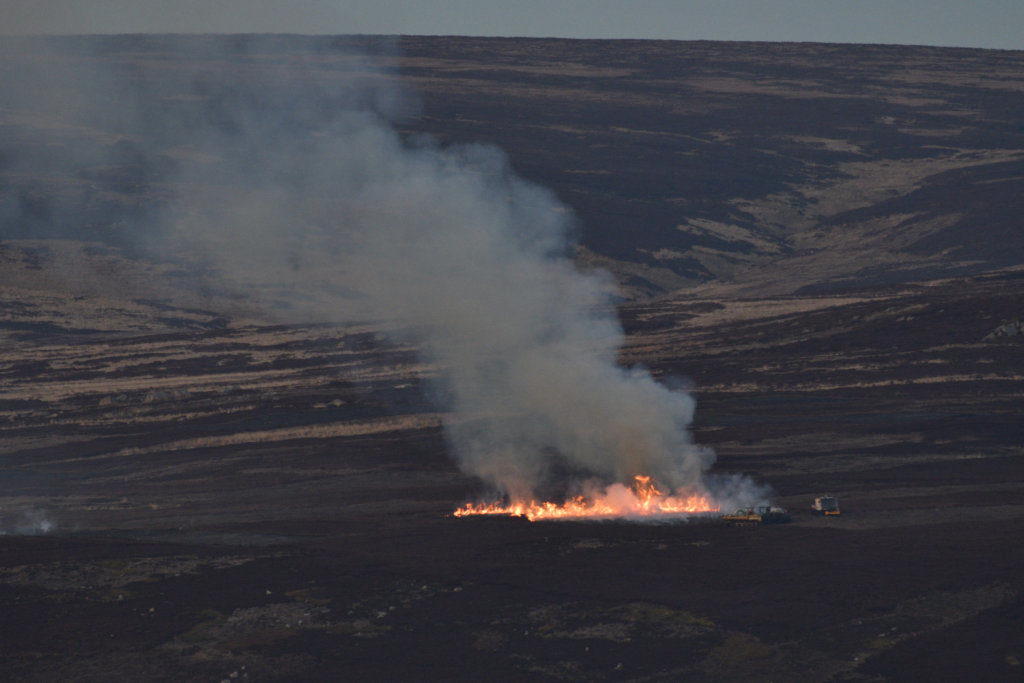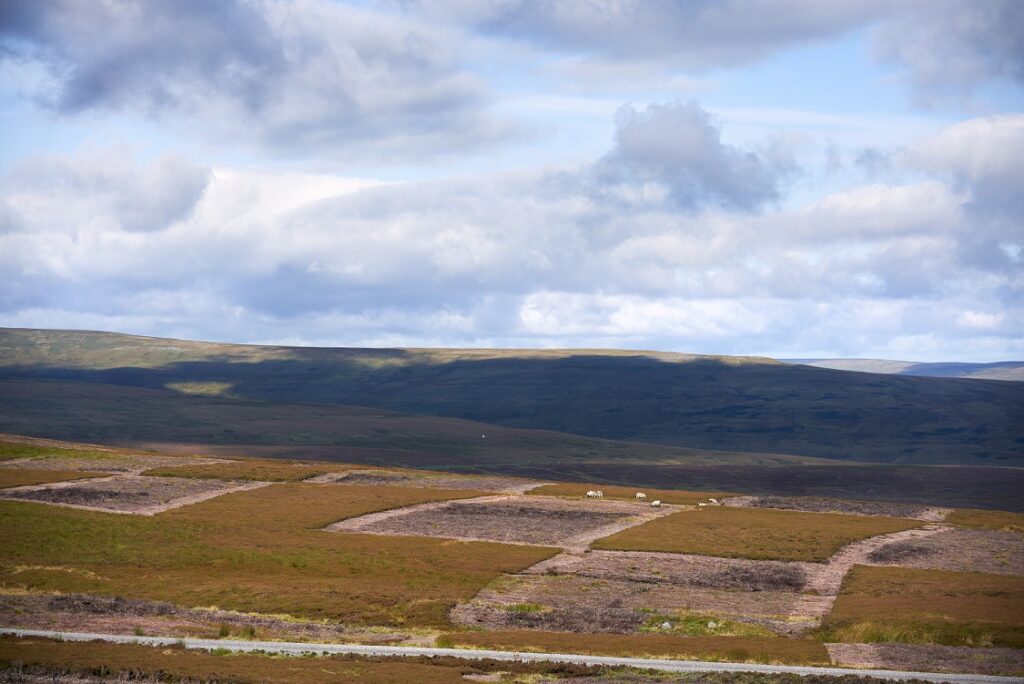Press release from Leigh Day and Wild Justice

Wild Justice issues legal challenge to new rules on burning of peatlands
A legal challenge to new rules governing the burning of heather and grass on peatlands in England has been issued, claiming they are unlawful and unenforceable.
Environmental group Wild Justice, represented by law firm Leigh Day, has applied for a judicial review of The Heather and Grass etc Burning (England) Regulations 2021, arguing that they are not only unenforceable, but create a façade of effectiveness, preventing urgent and far-reaching legislation addressing climate change and biodiversity loss from being introduced.
Wild Justice, led by Chris Packham CBE, Dr Ruth Tingay and Dr Mark Avery, say the Regulations introduced in May this year need to be much stricter to ensure they can be enforced effectively. The Regulations were introduced after previous voluntary measures aimed at halting the burning of blanket bogs failed. The Government has a responsibility to protect blanket bog under the Conservation and Species Regulations 2017, which require the restoration of the habitat to “favourable conservation status”.
The Burning Regulations 2021 are fatally flawed in two ways. They only prohibit the burning of heather, rough grass, bracken and gorse on peat deeper than 40cms – but there is no map to identify where such peat exists and therefore no means of properly enforcing the new rules. The new Regulations also only prevent the burning on Sites of Special Scientific Interest (SSSI) that are also designated as Special Areas of Conservation and Special Protection Areas, which amounts to a ban on only 40 per cent of all blanket bog in England.
The UK’s peat habitats are wetland landscapes where it is estimated there are over three billion tonnes of carbon stored. They have a unique biodiversity recognised as habitats of national and international significance. The UK’s upland blanket bogs are a globally rare habitat.
However, vegetation on upland peat soils is set alight at regular intervals, to promote the growth of young heather shoots to feed Red Grouse for the shooting industry. The practice damages the habitat, reduces peat accumulation, and releases around 260,000 tonnes of CO2 every year.
On 24 June 2021, the Climate Change Committee’s latest progress reports were laid before Parliament. The Report criticised the Burning Regulations for only preventing rotational burning on protected peatlands, highlighting that a partial ban was less ambitious than it had recommended. The Report includes a priority recommendation that this be “addressed quickly as delayed action now puts future targets at risk given the time profile of carbon sequestration” and that the Government: “Introduce legislation to … [e]xtend the ban on rotational burning of peat from certain protected upland bog sites to all peatland before the start of the burn season in 2021.” Wild Justice’s grounds for claim are:
- Unlawfulness arising from the Burning Regulations frustrating their own purpose: The Regulations do not include a map, without which they are unenforceable. The failure to publish or refer to a map is unlawful;
- Demonstrable flaw in the reasoning or serious logical error in the reasoning leading to the making of the Burning Regulations: there is no rationale for limiting the location of areas affected by the Regulations;
- Breaches of the Conservation of Habitats and Species Regulations 2017: failure to take appropriate steps to avoid deterioration of natural habitats and disturbance of species;
- Failure to take into account a material consideration, namely the imperative for early and swift action under the Climate Change Act 2008 (“CCA”) and the Paris Agreement.
Wild Justice said: ‘There’s a climate crisis and a biodiversity crisis, and this type of burning adds to both. Instead of acting decisively, DEFRA is fiddling while the uplands burn.‘.
Leigh Day solicitor Carol Day said: “Our client strongly supports effective action by the Secretary of State to protect peatland, including through enforceable legislation regulating the burning of blanket bogs, given their crucial importance as a habitat and in sequestering carbon. But in falling so far short of what is needed, these Regulations create a façade of effectiveness preventing real progress from being made. Wild Justice hopes that bringing this challenge, along with the call from the Climate Change Committee for urgent action, will prompt the Government to plug the gaps in these Regulations.”

ENDS
Wild Justice depends on donations to carry out our campaigning and legal work (and to pay our running costs). If you like what we do then please consider making a donation through PayPal, bank transfer or a cheque in the post – see details here.
